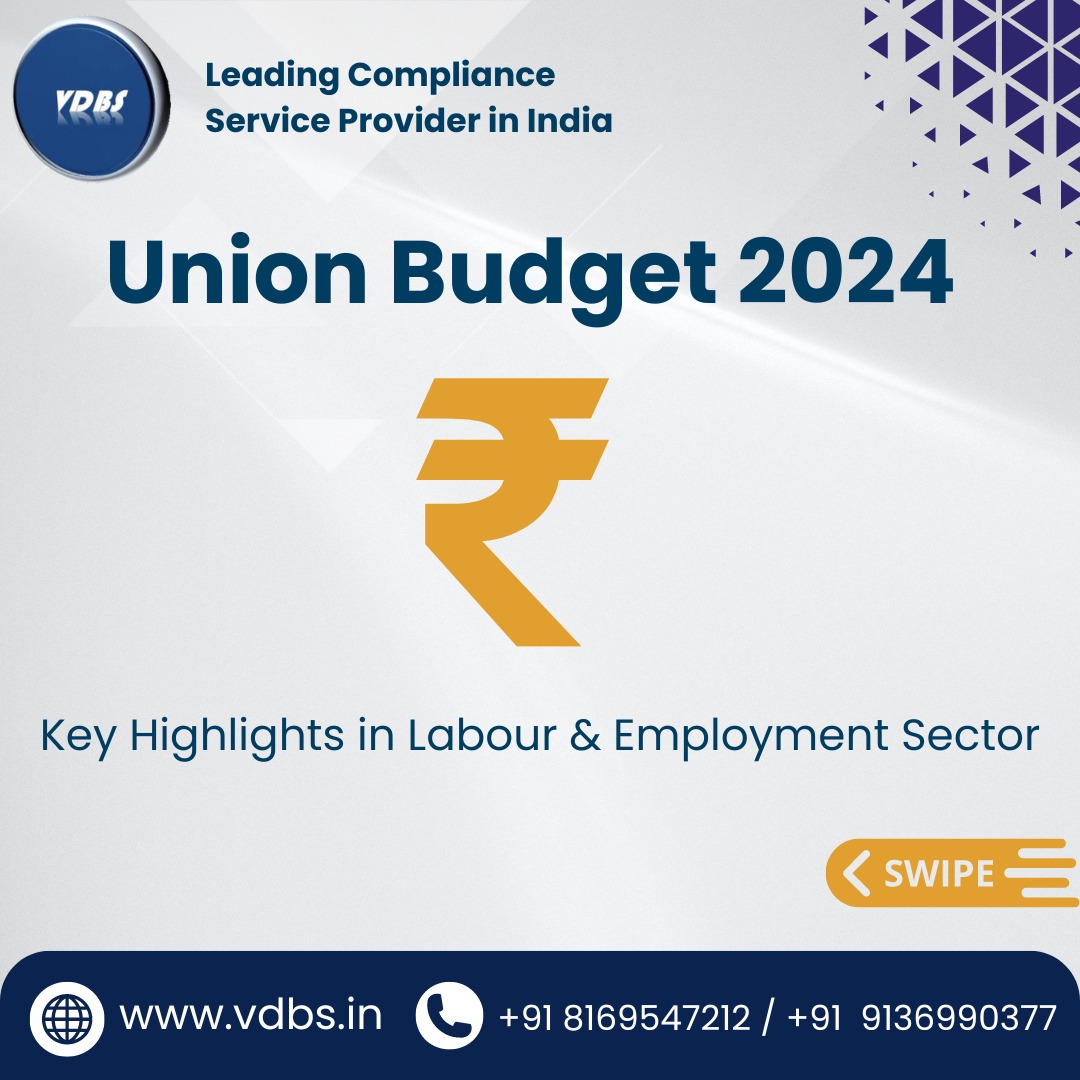
Budget 2024-2025: Key Takeaways for Employers and Corporations
The Union Budget for 2024-2025, presented by Finance Minister Nirmala Sitharaman, outlines significant measures aimed at fostering growth and stability within the Indian economy. This budget focuses on boosting employment, enhancing skilling initiatives, supporting MSMEs, and streamlining tax regimes. Below are the key points from the budget that employers and corporations need to consider.
1. Employment and Skilling Initiatives
Prime Minister’s Package for Employment and Skilling
• Employment Linked Incentive Scheme A (First Timers):
The budget introduces a comprehensive package aimed at facilitating employment and skilling for over 4.1 crore youth over a five-year period with a central outlay of ₹2 lakh crore. Key schemes include:
• Scheme B (Job Creation in Manufacturing):
Incentivizes additional employment in manufacturing by offering subsidies to both employees and employers over a four-year period.
• Scheme C (Support to Employers):
Covers additional employment across sectors, reimbursing employers up to ₹3,000 per month for two years for each additional employee hired.
• Skilling Programme:
A new centrally sponsored scheme to upgrade 1,000 Industrial Training Institutes (ITIs) with a focus on industry-aligned course content, benefitting 20 lakh youth over five years.
• Internship Programme:
Provides 12-month internships in top companies to 1 crore youth, with a monthly allowance of ₹5,000.
2. Support for MSMEs
Credit Guarantee Scheme for MSMEs in the Manufacturing Sector
A credit guarantee scheme will be introduced to facilitate term loans for MSMEs without collateral, with guarantee covers up to ₹100 crore provided by a self-financing guarantee fund.
New Assessment Model for MSME Credit
Public sector banks will develop new credit assessment models based on the digital footprints of MSMEs, moving beyond traditional asset or turnover criteria.
Credit Support During Stress Periods
A mechanism for continued bank credit to MSMEs during stress periods, with government guarantees to support businesses avoiding NPA status.
Enhanced Mudra Loans
The Mudra loan limit is increased from ₹10 lakh to ₹20 lakh for successful entrepreneurs under the ‘Tarun’ category.
E-Commerce Export Hubs
Public-private partnership (PPP) mode E-Commerce Export Hubs will be established to help MSMEs and traditional artisans sell products internationally.
3. Manufacturing and Services
Plug and Play Industrial Parks
Development of investment-ready industrial parks in or near 100 cities in partnership with states and the private sector, aiming to streamline town planning and infrastructure development.
Internship in Top Companies A scheme providing internships in top companies to 1 crore youth, designed to enhance practical business skills and employability.
4. Infrastructure Investments
Capital Expenditure
The budget allocates ₹11,11,111 crore for capital expenditure, accounting for 3.4% of GDP, continuing the focus on infrastructure development with a strong multiplier effect on the economy.
5. Taxation Reforms
Comprehensive Review of the Income-Tax Act
The Act will be made concise and easier to understand, aiming to reduce disputes and litigation, thus providing greater tax certainty.
Simplification of Capital Gains Tax
Short-term gains on certain financial assets will attract a 20% tax rate, while long-term gains on financial and non-financial assets will attract a 12.5% tax rate, with increased exemption limits for lower and middle-income classes.
Incentives for Foreign Investment
Corporate tax rates for foreign companies will be reduced from 40% to 35% to attract more foreign capital into the country.
6. Social Security and Personal Income Tax
Enhanced Deductions
Standard deductions for salaried employees and pensioners are increased, providing relief to about four crore individuals.
New Personal Income Tax Regime
The new regime revises tax rates across different income slabs, with significant savings for salaried employees under the new structure.
Conclusion
The Budget 2024-2025 aims to drive economic growth through strategic investments in infrastructure, employment, skilling, and support for MSMEs. The emphasis on simplifying tax structures and enhancing social security measures highlights the government's commitment to creating a conducive environment for businesses and improving the overall economic landscape. Employers and corporations should closely examine these provisions to align their strategies and take full advantage of the new opportunities presented.